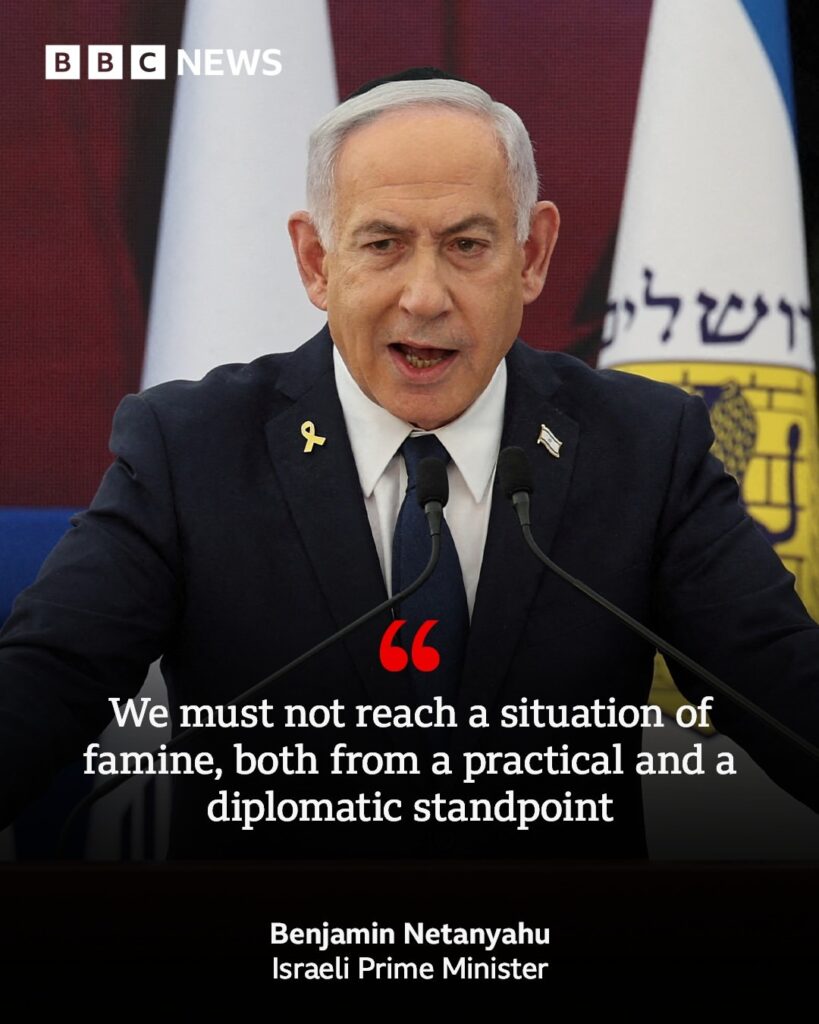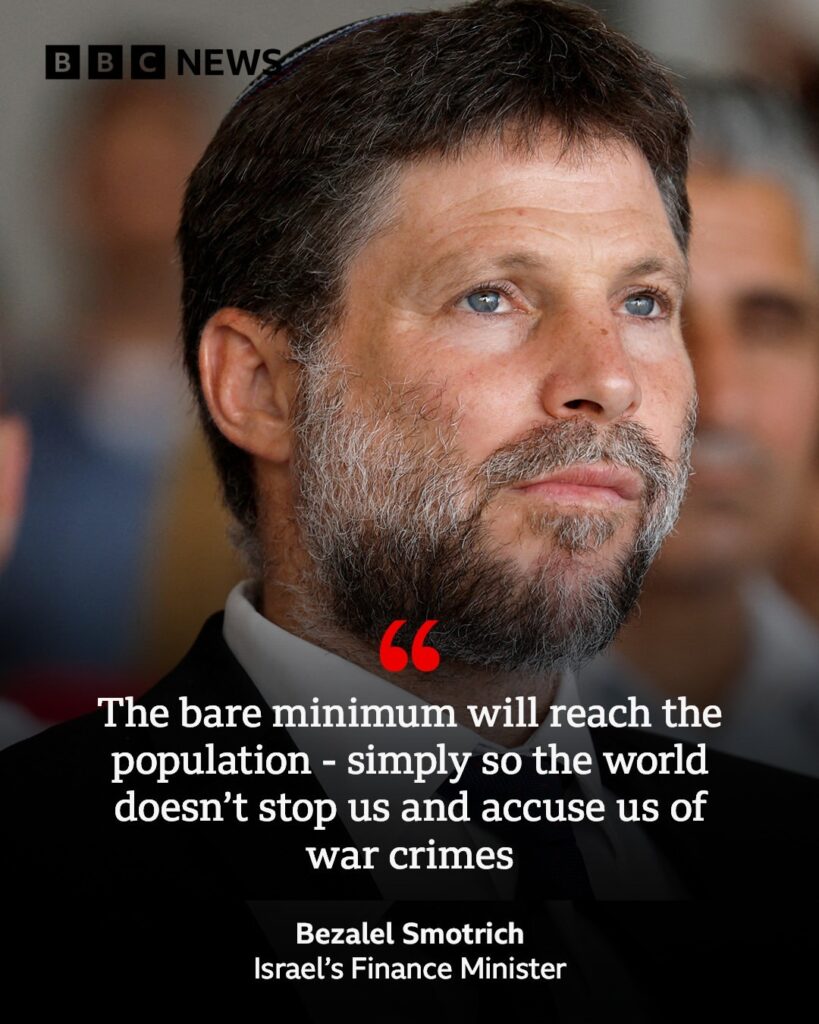
In a defiant and sweeping announcement, Israeli Prime Minister Benjamin Netanyahu has declared that Israeli forces will “take control of all areas” of the Gaza Strip as part of a renewed and expanded ground offensive aimed at dismantling Hamas’ operational and political infrastructure. The statement, delivered during a televised address on Sunday night, signaled a major escalation in Israel’s military campaign, deepening fears of prolonged conflict, rising civilian casualties, and the potential collapse of the already fragile humanitarian situation in Gaza.
“This is a fight for our future, for our security, and for the very existence of the State of Israel,” Netanyahu said. “We will take control of all areas of Gaza, eliminate Hamas’ terrorist capabilities, and ensure that never again can such evil be launched from that land.”
The announcement came amid intensified ground incursions, heavy aerial bombardment, and fierce urban combat that has displaced hundreds of thousands of Palestinians and left vast swaths of Gaza in ruins. The expanded offensive follows the failure of ceasefire negotiations mediated by Egypt and Qatar, and increasing domestic pressure on Netanyahu’s government to deliver a decisive military victory.
A Major Military Escalation
The Israel Defense Forces (IDF) have been gradually increasing their presence inside Gaza over recent weeks, targeting Hamas strongholds, command tunnels, and weapons depots, while also pushing into densely populated areas including Khan Younis in the south and Jabalia in the north.
Netanyahu’s declaration that Israel will now seek to “take control of all areas” represents a strategic shift — from targeted strikes and limited incursions to a full-scale occupation of the territory. Military analysts say this move could dramatically reshape the conflict’s trajectory, potentially resulting in the longest and most destructive Israeli military campaign in Gaza since Hamas took power in 2007.
Defense Minister Yoav Gallant echoed Netanyahu’s stance, stating that Israeli troops are “prepared for a prolonged presence on the ground” and that the campaign will continue “until every last tunnel is destroyed, and every terrorist is neutralized.”
The IDF reports it has eliminated several high-ranking Hamas commanders in recent days and destroyed dozens of underground tunnel networks. However, the cost of the operation continues to rise, both in human and political terms.
Mounting Civilian Toll
Gaza’s health ministry, which is run by Hamas, reported that more than 35,000 Palestinians have been killed since the start of the war, including thousands of children and women. The relentless bombing and ground assaults have displaced more than 1.8 million people — over 80% of Gaza’s population — forcing many to seek shelter in overcrowded UN schools and aid centers, often without food, water, or medical care.
Aid organizations have condemned the expansion of Israel’s ground campaign, warning that the humanitarian crisis in Gaza is spiraling out of control. The World Health Organization and the UN’s Office for the Coordination of Humanitarian Affairs (OCHA) have reported that more than half of Gaza’s hospitals are non-functional, while severe shortages of fuel, clean water, and medical supplies have made it nearly impossible to treat the wounded.
Martin Griffiths, the UN’s Humanitarian Chief, responded to Netanyahu’s remarks with alarm. “Expanding military operations into all areas of Gaza risks making a dire humanitarian situation even worse,” he said. “There are no safe zones left for civilians. The world must act to prevent further loss of life.”

Netanyahu’s Political Calculus
Netanyahu’s aggressive rhetoric is seen by many analysts as not only a military strategy but also a political move to shore up his government amid intense domestic and international criticism.
In Israel, thousands have taken to the streets demanding the return of hostages held by Hamas and criticizing the government’s handling of the crisis. Netanyahu faces pressure from hardline coalition partners demanding a complete military conquest of Gaza, as well as from more moderate voices advocating for renewed ceasefire efforts and international cooperation.
“There are no good options left for Netanyahu,” said Alon Pinkas, a former Israeli diplomat. “A limited war is seen as weak; a full occupation is seen as a quagmire. But declaring total control of Gaza gives the appearance of strength — whether or not it is achievable or sustainable is another matter.”
Many military experts warn that a full occupation of Gaza would require years of commitment, billions in resources, and likely cost thousands of additional lives — Israeli and Palestinian alike.
Regional and Global Reactions
The announcement has triggered alarm across the Middle East and beyond. Egypt and Jordan, which have peace treaties with Israel, condemned the escalation and warned it could inflame tensions throughout the region. Qatar, which has played a key role in mediating past truces, expressed “deep concern” and called on the international community to intervene.
The United States, Israel’s closest ally, issued a cautious statement supporting Israel’s right to defend itself, while urging restraint and the protection of civilians. U.S. Secretary of State Antony Blinken stated, “While we understand the security concerns of our Israeli partners, we also believe that a sustainable solution must prioritize humanitarian access, avoid mass civilian displacement, and consider the day after.”
So far, no clear post-war plan has been articulated by the Israeli government. Netanyahu has said that “Hamas will not rule Gaza” but has not indicated who or what will replace the militant group in the event of their defeat. The Palestinian Authority, which governs parts of the West Bank, remains politically weak and deeply unpopular among many Palestinians in Gaza.

The Future of Gaza: An Open Question
With Israeli troops advancing deeper into Gaza and no end to the conflict in sight, the question of what comes next remains unanswered. Will Israel reoccupy the territory long-term? Will it attempt to establish a buffer zone? Will it withdraw after degrading Hamas, leaving a power vacuum?
Palestinians on the ground fear the worst — a future of continued displacement, economic collapse, and foreign military presence.
“We have nowhere to run,” said Mahmoud, a teacher from central Gaza now living in a makeshift camp in Rafah. “They say they want to destroy Hamas, but they are destroying our lives. Every day, we bury more friends, more children. Is this security?”
International voices continue to call for a diplomatic solution. The UN has urged for an immediate ceasefire and the establishment of a multilateral peace process to resolve the conflict and rebuild Gaza. But with both sides entrenched in their positions, peace remains elusive.
Conclusion
Prime Minister Netanyahu’s declaration that Israeli forces will “take control of all areas” of Gaza marks a dangerous new chapter in an already devastating war. While Israel insists that this move is necessary for national security, the consequences — humanitarian, political, and moral — are likely to be profound and lasting.
With the civilian death toll rising, aid cut off, and diplomatic efforts faltering, the world faces a stark choice: to stand by and watch a humanitarian catastrophe unfold, or to exert real pressure on all parties to end the violence and pursue a just, lasting peace. Until then, Gaza remains under siege — and its people, caught in the crossfire, continue to pay the heaviest price.



